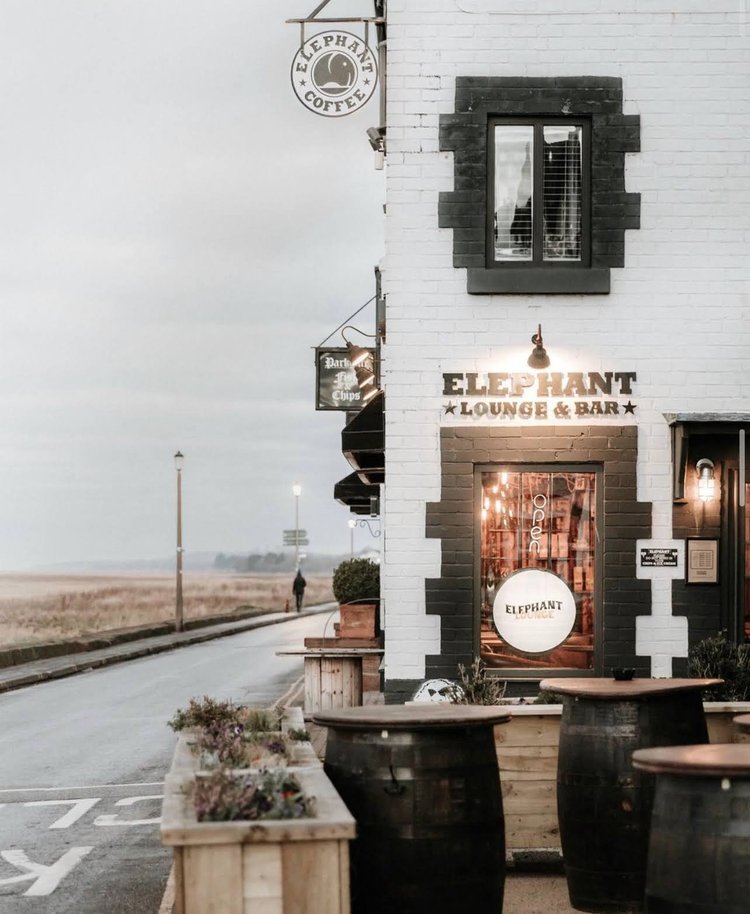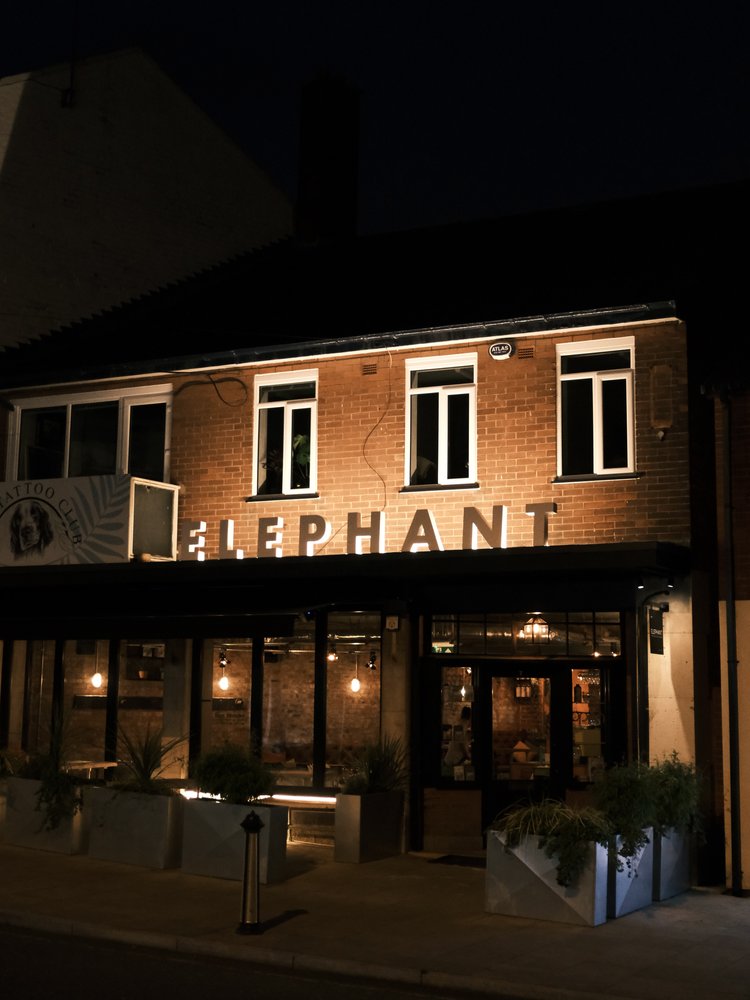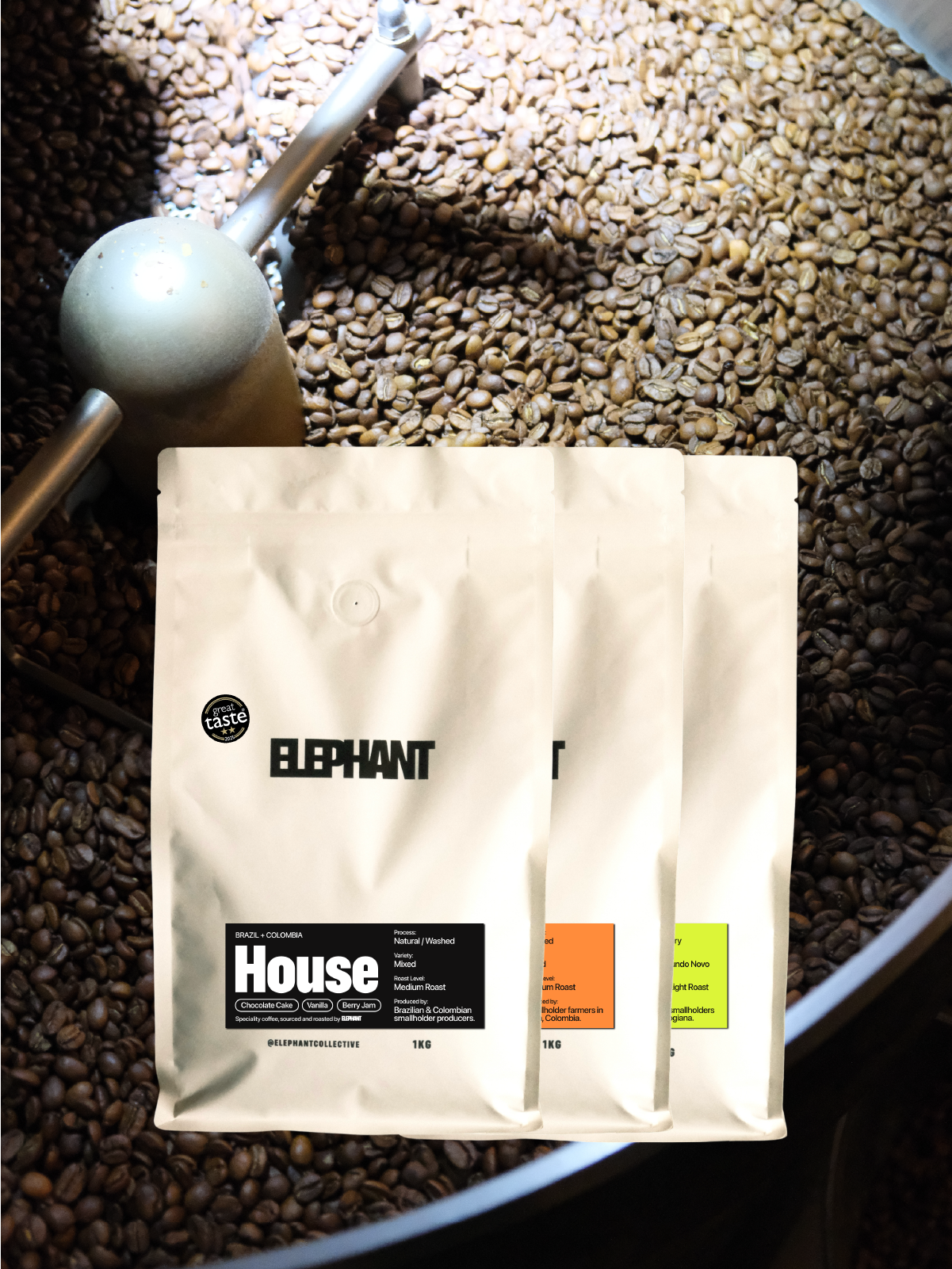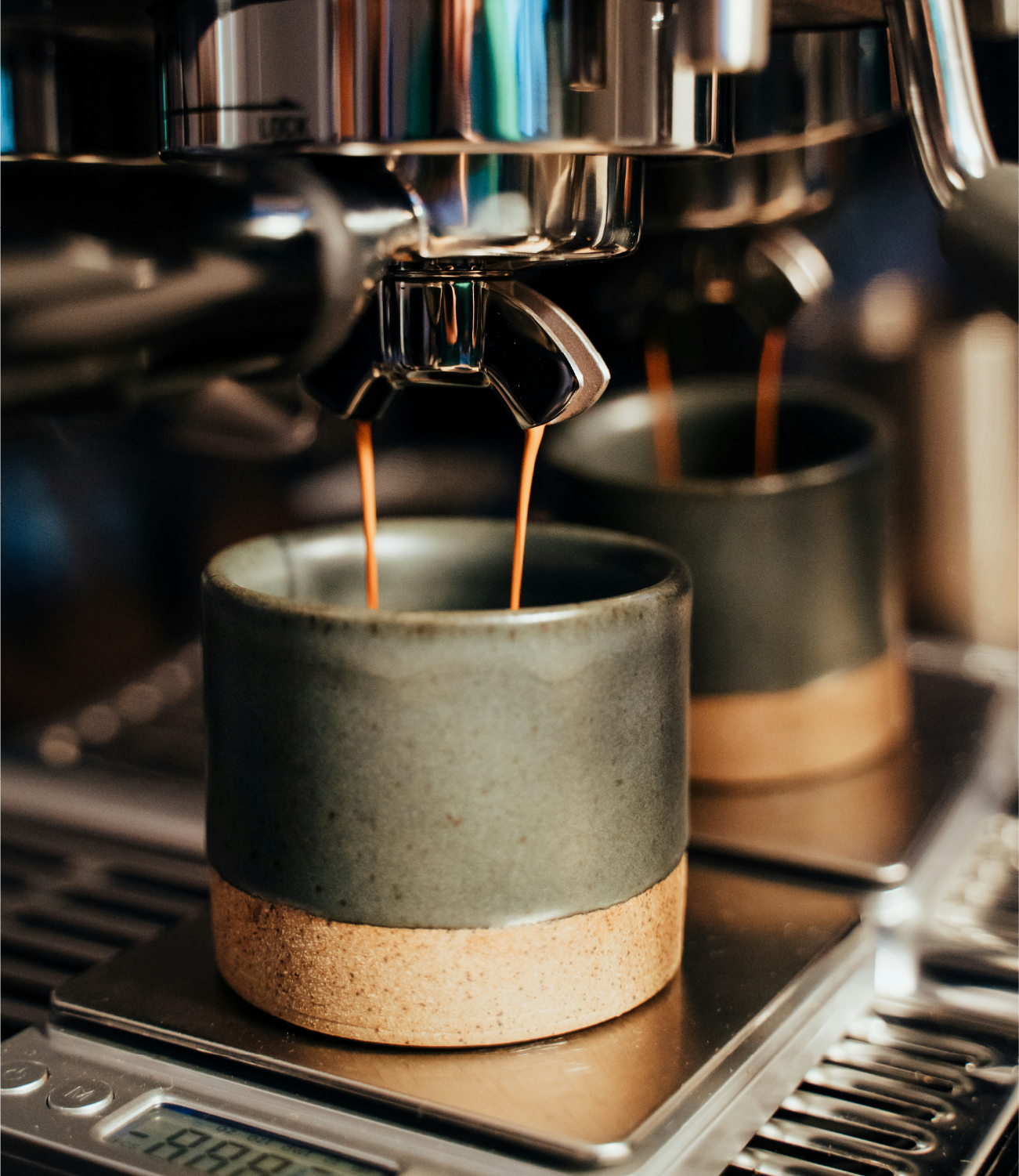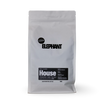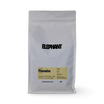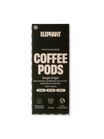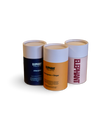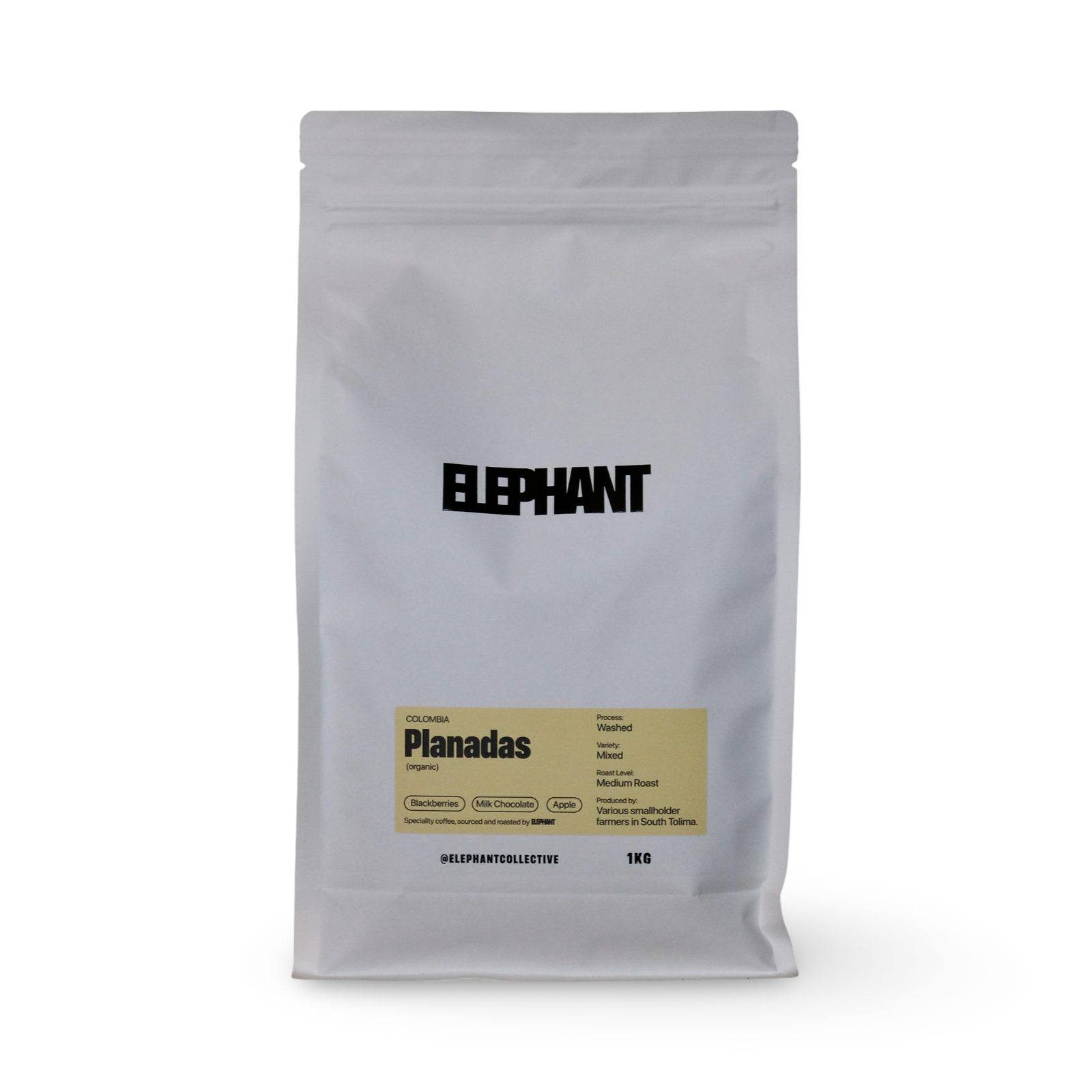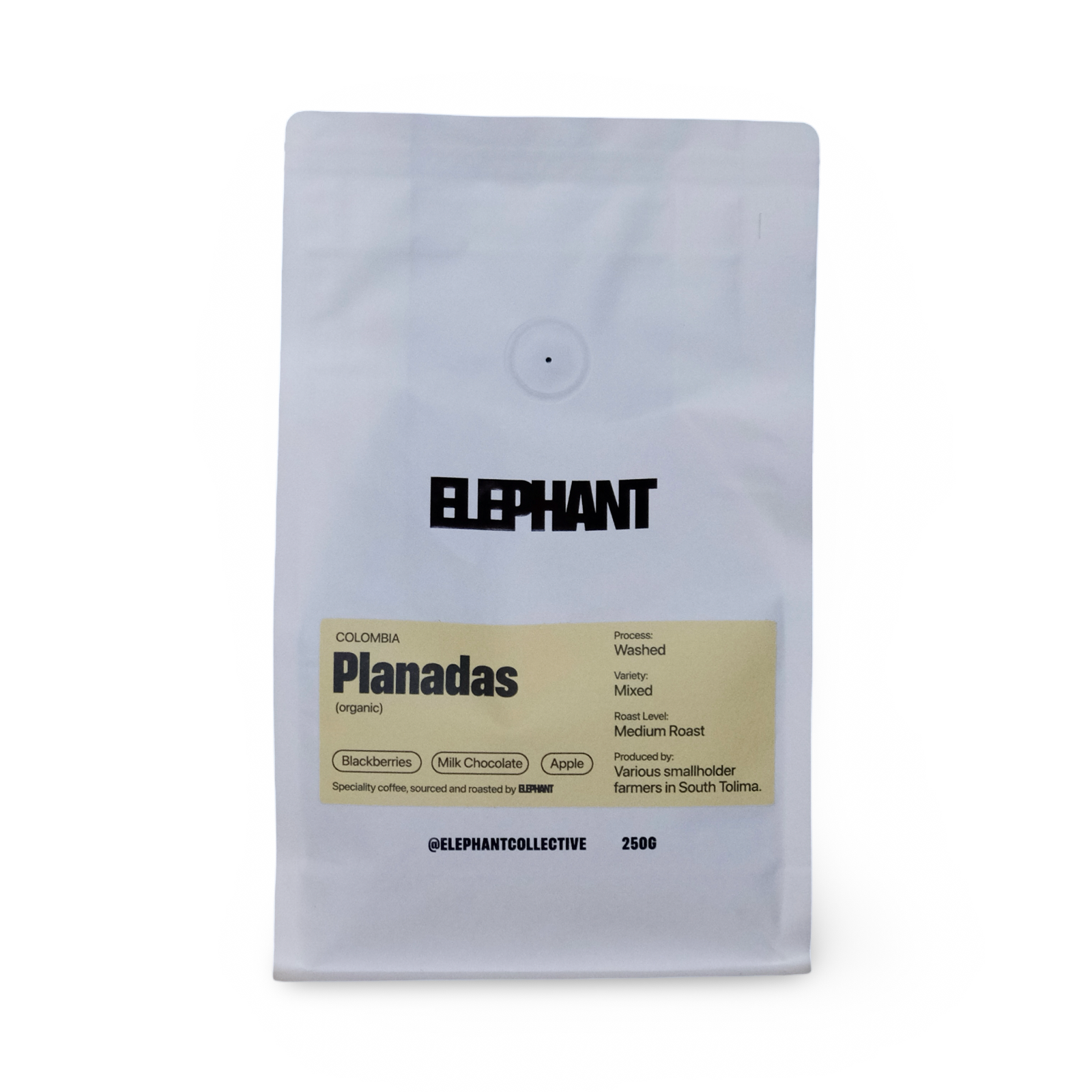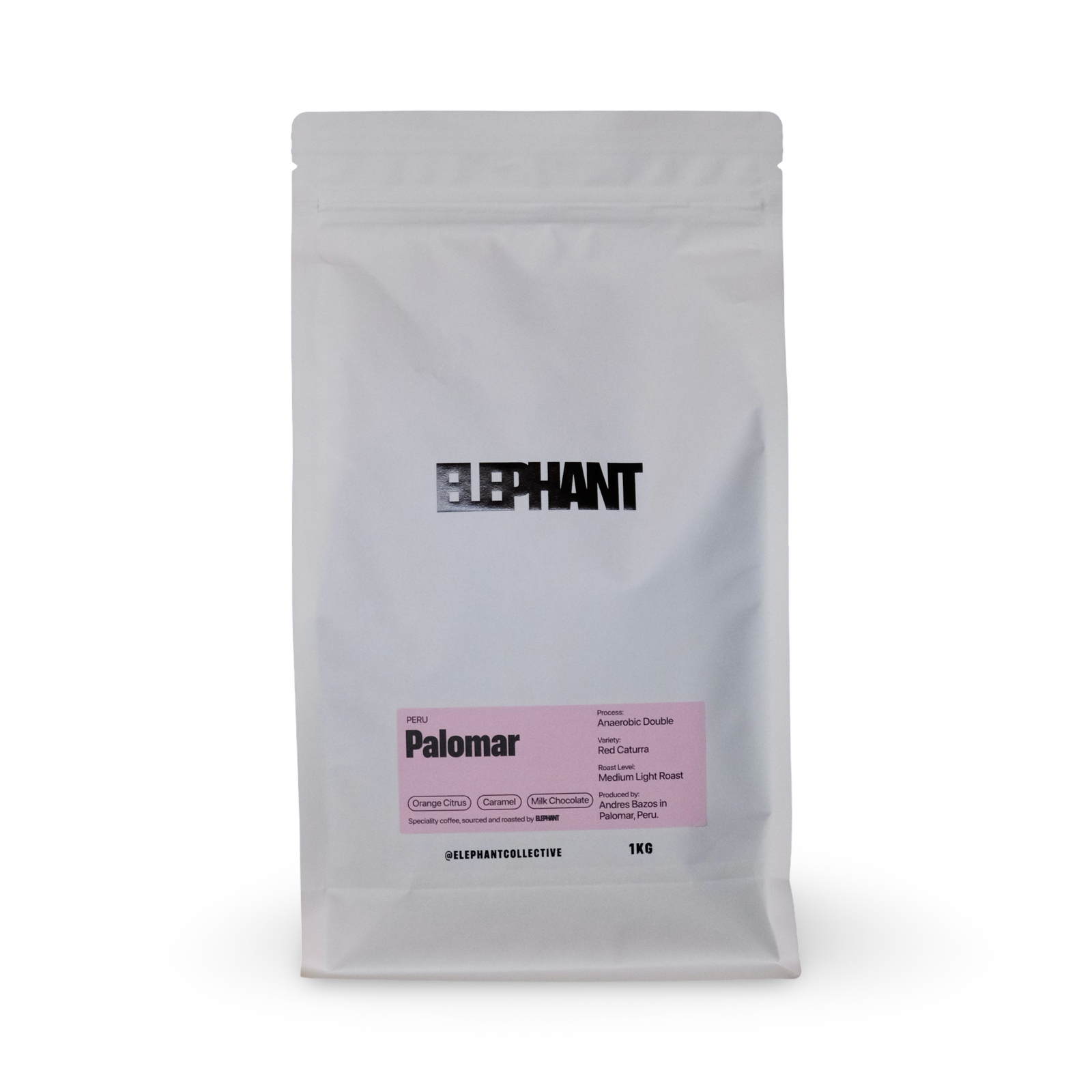
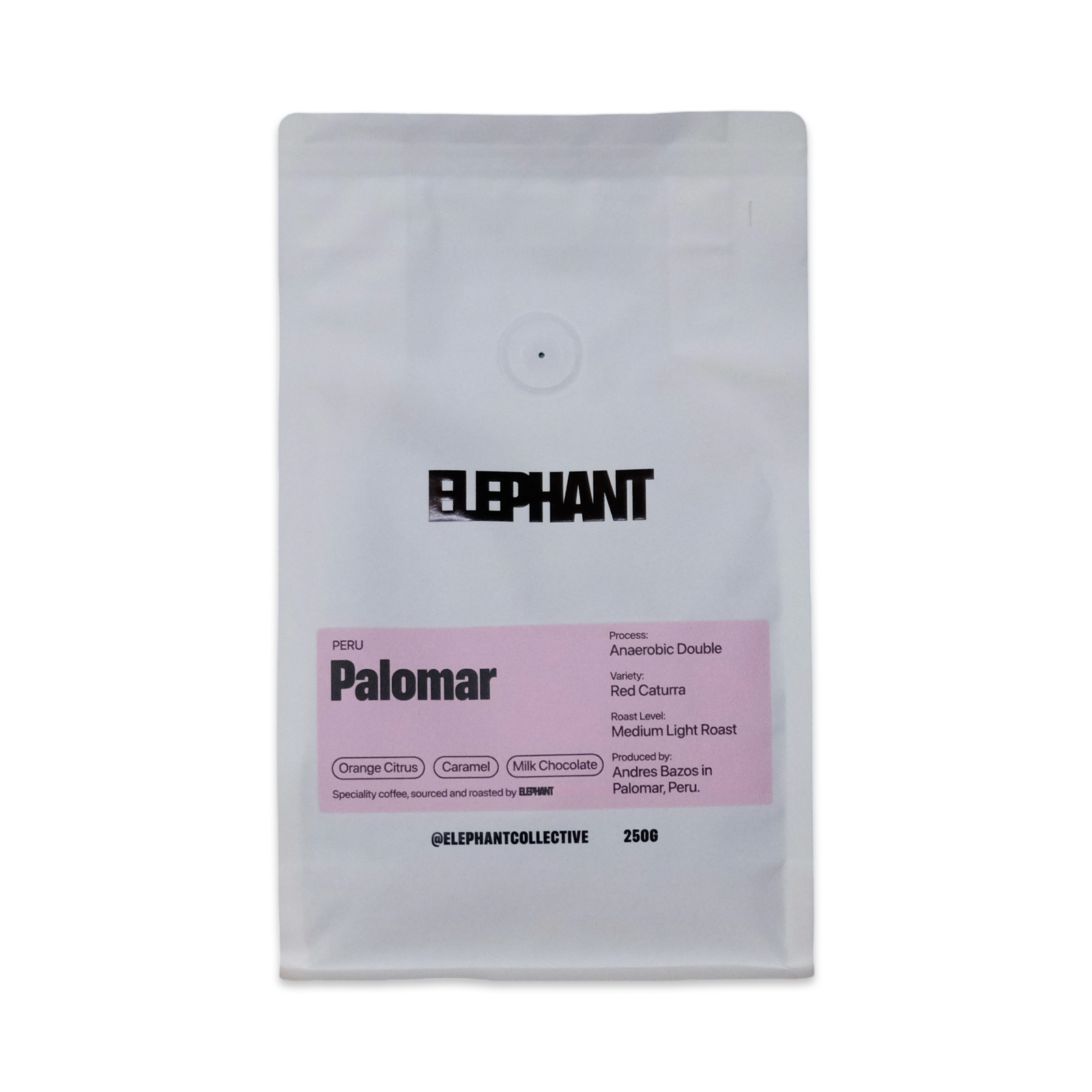
Palomar, Peru
Orange Citrus, Caramel, Milk Chocolate.
Andres is a coffee producer who inherited a farm from his great grandfather 80 years ago. His farming practices have come a long way since he took over the farm and in the last decade has invested heavily in learning more about specialty coffee and implementing best practices and techniques.
Producer - Andres Bazos
Region - Palomar
Altitude - 1600-1800
Varietal - Red Caturra
Process - Washed
Roast Level - ◉◉◉◎◎
Ratio: 15 g coffee → 250 ml water (≈1:16.7)
Temp: 94 °C
Grind: Medium-fine (like table salt)
Total brew time: 2 ½–3 min
Steps
- Prep – Rinse filter with hot water, discard rinse.
- Add coffee – 15 g ground coffee in brewer.
- Bloom – Pour 40 ml water, let sit 30 s.
- Pour – Slowly add the rest (up to 250 ml) in circles by 1:30.
- Wait – Let it drain; total time around 2:45.
- Swirl & sip – Expect citrus brightness, caramel sweetness, chocolate finish.
Temp: 93 °C
Pressure: 9 bar
Ratio: 1:2 (e.g. 18 g in → 36 g out)
Time: 27–30 s
Steps
- Grind – Fine, like caster sugar. Freshly ground beans only.
- Dose & tamp – 18 g coffee (adjust for your basket). Even, firm tamp.
- Pull shot – Aim for 36 g yield in ~28 seconds.
- Serve – Expect a syrupy body with orange brightness, caramel sweetness and a chocolatey finish.
- We recommend consuming the coffee within three months (unopened).
- Once opened, we recommend using within 7 days.
- Store in a cool, dry place.
Ships within 1-3 working days.

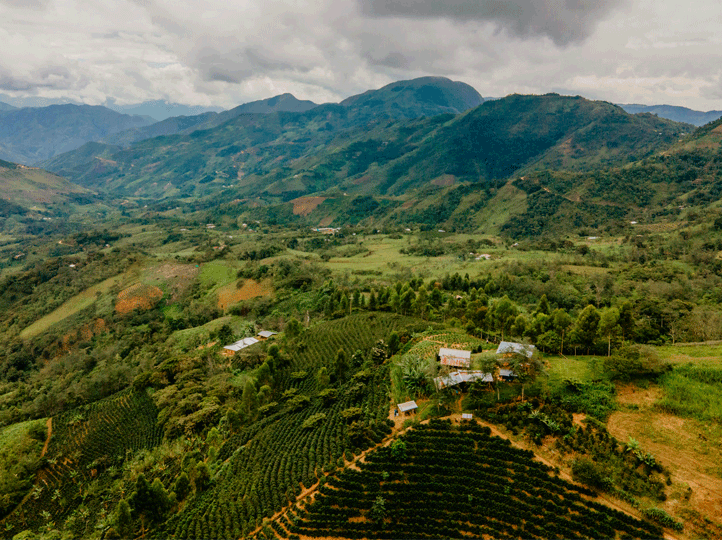
Coffee Origins
PALOMAR, PERU
"Llave de Oro" (Gold Key) was established in 1970. The farm primarily grows Caturra, Catimor, and Bourbon varieties across 36 hectares in Sanchirio Palomar, Chanchamayo province in the region of Junin. The altitude ranges from 1600 to 1800 masl.
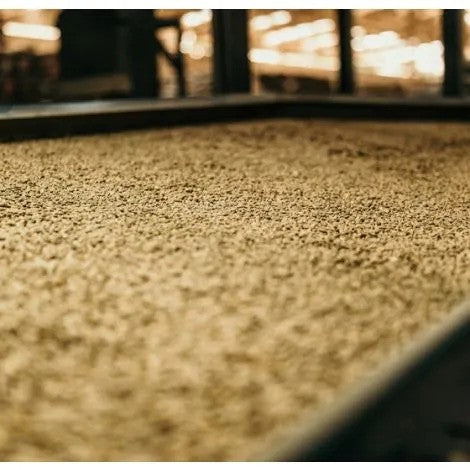
Process
Washed
The farm has implemented strict quality control measures throughout the coffee production process. The harvest is carried out when the coffee cherries are fully ripe, with no green cherries. The processing and fermentation is done in-house using stainless steel equipment, and an anaerobic fermentation process is used. The cherries are sorted and then sealed in stainless steel tanks for 24 hours, the coffee is then pulped and fermented again for another 24 hours in ceramic tanks. For the drying they are put on raised beds in a drying room unitl 10-11% moisture.


